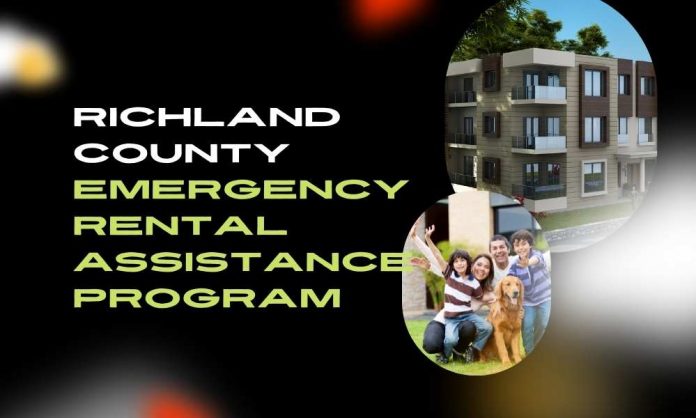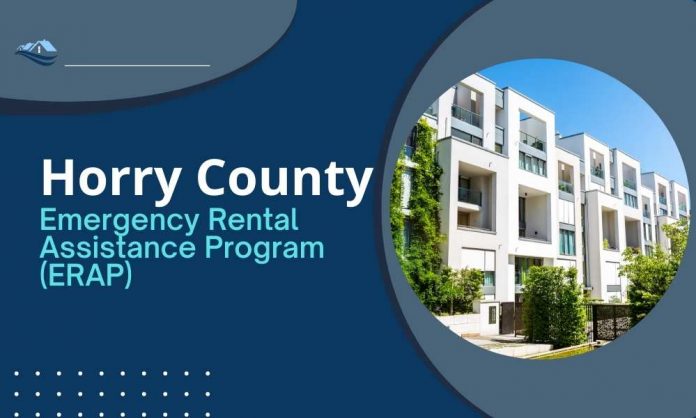SC Stay Plus was developed to assist residents of South Carolina who have been unable to pay their rent or utility bills as a result of the high cost of living outbreak in the state. It provides direct payments to landlords and utility companies on behalf of the tenants who have been affected. These funds are made accessible to South Carolinians under the Consolidated Appropriations Act of 2021 and South Carolina Joint Resolution R.26, respectively. The South Carolina State Housing Finance and Development Authority manages this program, which differs from SC Stay, a previous mortgage and rental assistance program, which was administered by the Department of Community Affairs (SC Housing).
As a result of the federal Consolidated Appropriations Act 2021, SC Housing has received $272 million in federal monies for rental and utility assistance. From Wednesday, May 5, 2021, money from this allocation will be made available to qualified members of the public beginning on Wednesday, May 5, 2021.
The funds will be distributed to eligible households on a rolling basis until all of the funds have been distributed to them. Applications from lower-income applicants (those earning less than 50 percent of the Area Median Income), unemployed applicants (those who have been out of work for more than 90 days), and those who have received an eviction notice or a notice of nonpayment will be given preference.
 If you have unpaid rent (arrearages) owing to financial uncertainties induced by the high cost of living, SC Stay Plus will cover up to 12 months of your rent (arrearages). These obligations must have been incurred on or after March 13, 2020, to qualify. In certain cases, future rental assistance of up to three (3) months will be provided to individuals who are at risk of homelessness or housing instability to help them maintain their housing stability. Besides utility assistance (provided directly to utility companies), SC Stay Plus will also provide aid with past-due utility and home energy bills.
If you have unpaid rent (arrearages) owing to financial uncertainties induced by the high cost of living, SC Stay Plus will cover up to 12 months of your rent (arrearages). These obligations must have been incurred on or after March 13, 2020, to qualify. In certain cases, future rental assistance of up to three (3) months will be provided to individuals who are at risk of homelessness or housing instability to help them maintain their housing stability. Besides utility assistance (provided directly to utility companies), SC Stay Plus will also provide aid with past-due utility and home energy bills.
The following requirements must be met by a household to be eligible for rental assistance:[1] The household must meet several standards. SC Stay Plus is only available to households (defined as renter households with one or more individuals who are entitled to pay rent on a residential dwelling) who meet the following criteria:
One or more members of the household must be compelled to pay rent on a residential dwelling, one or more members of the household must be at risk of homelessness or housing instability, AND one or more members of the household must be obligated to pay rent on a residential residence, AND
It is estimated that the total household income is equal to or less than 80% of the nationally defined Area Median Income, AND
To be eligible, at least one member of the household must meet all of the following requirements:
You may be eligible for unemployment benefits as a result of the high cost of living epidemic, or you may have had a decrease in household income as a result of the outbreak, or you may have incurred significant expenses, or you may have encountered other financial hardship as a result of the outbreak.
Households who meet three criteria will be given priority for aid, according to South Carolina Act 17 of 2021. These include:
Families that have been out of work for at least 90 days before requesting assistance are considered eligible for help.
Households with an income of less than 50% of the Area Median Income are eligible to participate in the program.
Households that are eligible yet are in danger of being evicted
Other federally supported rental assistance programs will not cover the cost of rent or utility expenses incurred by SC Stay Plus. SC Stay Plus is only offered to renters; it does not provide coverage for mortgage or energy payments for owners of their own homes.
INSTRUCTIONS FOR COMPLETING THIS APPLICATION FORM
 Once you’ve started an application, you must see it through to completion. This means that you will not be able to quit and return to finish it later. It should take no more than 30 minutes to complete this application in its entirety.
Once you’ve started an application, you must see it through to completion. This means that you will not be able to quit and return to finish it later. It should take no more than 30 minutes to complete this application in its entirety.
Each question should be addressed completely and honestly. If you supply information that is either missing or incorrect, your application may be delayed.
Allow up to 45 days for the SC Stay Plus program to complete and process your whole application. If the required papers are not uploaded within the specified time frame, the procedure will be extended. Additionally, the payment delivery option you select (ACH/Direct Deposit vs. Mailed Check) will have an impact on the timing of your payment.
The following documentation must be presented with your application. Take a few minutes to gather all of the essential documentation before you begin your application.
Identification of the individual (It must be valid till March 13, 2020.) After March 13, 2020, it is still lawful to use identification documents that have expired before to that date.
Proof of a lease (Note: If you do not have a formal, signed lease, you can still apply for SC Stay Plus. Providing evidence of regular rental payments instead of signing the lease is required (for example, bank records, check remittance receipts, or an image taken from a payment application).
Evidence of the potential for homelessness or housing insecurity (Applicants may “self-attest” to this qualification as part of the standard application process)
Proof of wages is required (Note: applicants must provide all income sources for all household members at or over the age of 18)
Proof of unpaid rent to a landlord is required (to meet this criterion, click here to complete the online landlord-tenant certification form).
This page(opens in a new tab)(opens in a new tab) offers a complete list of the documents that have been accepted (opens in a new tab).
 After all other qualified residents in the state have been served, SC Stay Plus will not cover rent or utilities for tenants in the following counties: Anderson, Berkeley, Charleston, Greenville, Horry, Richland, or Spartanburg counties. It is recommended that renters in such counties seek rental assistance by contacting their respective county offices. To obtain additional information and specific step-by-step application procedures, applicants are encouraged to consult the User Guide, which will be made available on the website www.southcarolina.onlinepha.com shortly before the application window opens.
After all other qualified residents in the state have been served, SC Stay Plus will not cover rent or utilities for tenants in the following counties: Anderson, Berkeley, Charleston, Greenville, Horry, Richland, or Spartanburg counties. It is recommended that renters in such counties seek rental assistance by contacting their respective county offices. To obtain additional information and specific step-by-step application procedures, applicants are encouraged to consult the User Guide, which will be made available on the website www.southcarolina.onlinepha.com shortly before the application window opens.
If the SC Stay Plus eligibility rules change, this information and this page will be updated accordingly.
(1) These criteria are based on the information provided by the following sources: (2) South Carolina Joint Resolution R.26 provisions and requirements, as well as guidance from the United States Treasury Department on the requirements of the Emergency Rental Assistance (ERA) program established by the Consolidated Appropriations Act, 2021 (as revised on March 16, 2021). (as amended March 4, 2021).

Angela Silva, a dedicated 42-year-old consultant specializing in government housing and rental assistance, hails from Sydney, Australia. She completed her education with a degree in Urban Planning from the University of New South Wales. Angela’s career has been marked by her relentless advocacy for affordable housing solutions, where she has worked extensively with both local governments and international agencies in Asia-Pacific regions. Her initiatives have led to the development of sustainable housing projects that cater to low-income families. Outside of her professional environment, Angela enjoys a peaceful life with her partner and their two adopted dogs, engaging in community gardening and urban sustainability projects.



